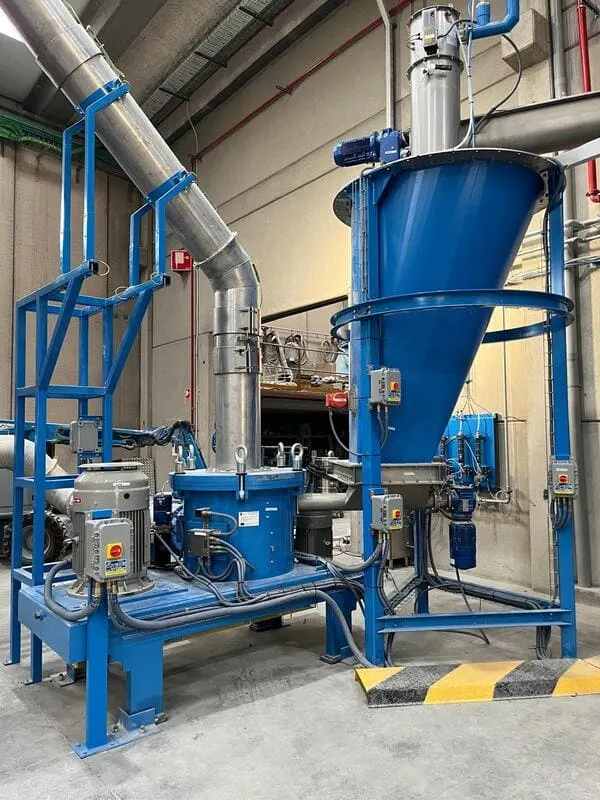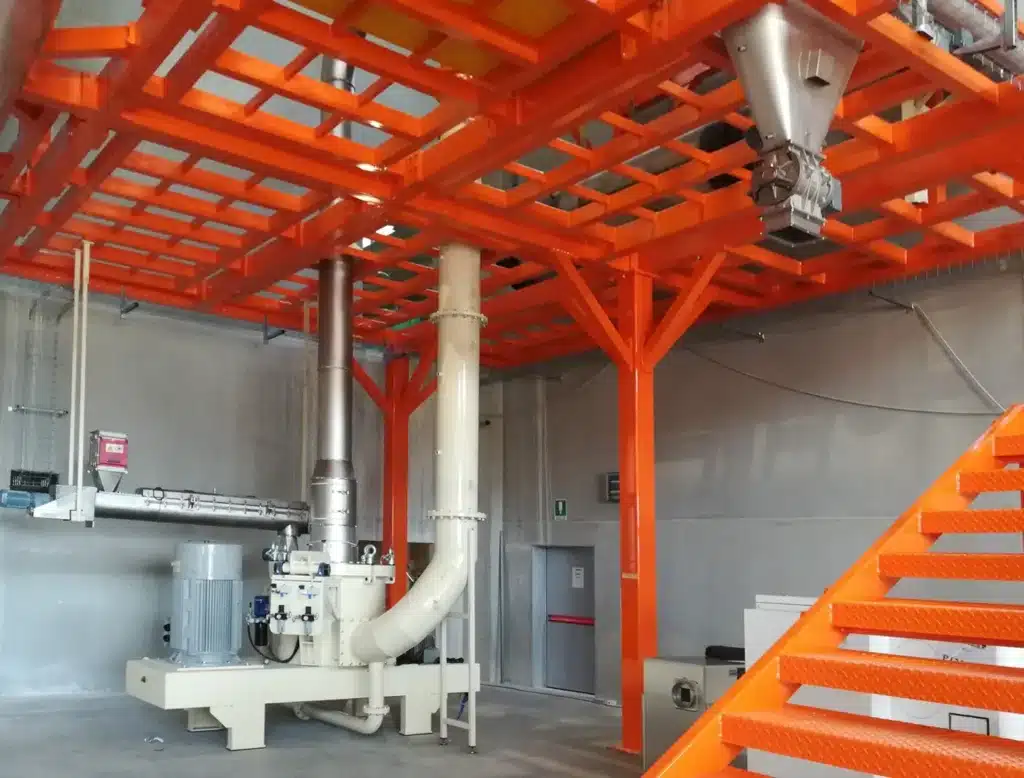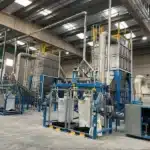The food industry needs great precision and quality, especially when pulverizing ingredients. Whether it is specialty flours, proteins, thickeners, or spices, reducing particle size is important to achieve a high-quality end product.
At Cimma Morandotti S.p.A., our state-of-the-art micronization and pulverization technology with integrated single-step classification is widely used in the food industry. These systems enable innovative products, improving efficiency and characteristics unattainable by traditional methods.

The Fundamental Role of Pulverization in the Food Sector.
Optimization of Functional Properties
Grinding is not simply about reducing particle size, but also about improving the functional properties of the ingredients. Precise grinding can:
- Improving mixability: Finely and evenly ground ingredients are better dispersed in complex mixtures.
- Increase specific surface area: This is essential for nutrient uptake and availability, especially during protein extraction.
- Check consistency and texture: Fundamental elements for baked goods, sauces, beverages, and thickeners.
- Preserving flavors and properties: Controlled grinding prevents overheating, preserving volatile compounds and heat-sensitive nutrients.
Limitations of Conventional Technologies
In the food industry, traditional technologies such as the hammer mill for grinding are still in use. These systems can adversely affect product quality and labor efficiency.
A first limitation is particle size control. Often, conventional mills cannot achieve fine, precise, and controlled particle size. For this, other steps such as sieving or recycling are needed, which lengthens time and increases costs, but without achieving the results of more advanced systems with dynamic air classification.
Another problem is the heat created during grinding. Overheating can damage delicate products such as spices, cocoa, or foods with a lot of fat or oil. This can lose aroma and degrade active ingredients and important substances.
There is also a risk of contamination. The parts of the mill that are in direct contact with the product can wear out and release impurities. In the food industry, this is very dangerous because very high standards of hygiene must be met. CIMMA’s attention to this problem is continuous, to date special materials are used to resist wear and minimize contamination.
However, mills with more traditional technology, such as the hammer and screen mill, have been developed and evolved as they find application when the grain size is not very fine and precise control of it is not needed.

Cimma Solutions: Advanced Technologies for Food Excellence.
Pulverization with Integrated Classification
At Cimma, our technology integrates pulverization and classification into one system through the use of microseparator and dynamic selector. This makes it possible to achieve:
- Accuracy in particle size: Very small particles are controlled with great precision, so no more steps are needed to refine the product.
- Maximum efficiency: An integrated system reduces the number of machines and consumes less energy. Particles that are not fine enough are recycled directly inside the processing chamber.
- Protection of properties: With cooling systems, including the use of liquid nitrogen in cryogenic grinding, the flavors, colors and nutrients of the most delicate products remain intact.
Versatility and Hygiene
Cimma technologies can be used for a wide range of products:
- Flours from cereals or legumes, for baking and gluten-free products.
- Plant protein, extracted and refined from soybeans, peas, and other legumes.
- Thickeners and stabilizers such as modified starches, pectins and vegetable gums.
- Spices and herbs, preserving their intensity and aroma.
- Cocoa, for the production of high-quality powders.
- Various dry products, such as powdered milk, sugars, coffee and tea.
The design uses high-quality materials, such as stainless steel and wear-resistant materials, which directly touch the product. This helps keep everything clean and avoid contamination.
In addition, our plants have ATEX certification, which ensures maximum safety even when processing potentially explosive food powders.

Benefits of Relying on Cimma for Food Dusting
Choosing Cimma means aiming for:
- Innovative food products with advanced features.
- High quality and uniformity due to particle size control.
- Process efficiency and cost reduction, with lower energy consumption and waste.
- Maximum safety and hygiene, complying with the most stringent regulations.
- Application flexibility, with customized solutions and test room capabilities.
- Comprehensive support from initial consultation to after-sales service.
Cimma: Your Partner in Advanced Food Processing
With established expertise in manufacturing plants for crushing, cryogenic pulverizing, grading, blending and more, Cimma offers state-of-the-art turnkey solutions. Our 4.0 and 5.0 plants are designed to meet the challenges of digitization and industrial efficiency, while always maintaining a customized and sustainable approach.
Contact Cimma to Innovate Pulverizing in Your Food Sector.
If you want to elevate the quality of your food ingredients with the latest industrial pulverization and micronization technologies, Cimma is the ideal partner.
Contact us today for a personalized consultation and find out how we can help you achieve excellent, safe, high-performing products.


